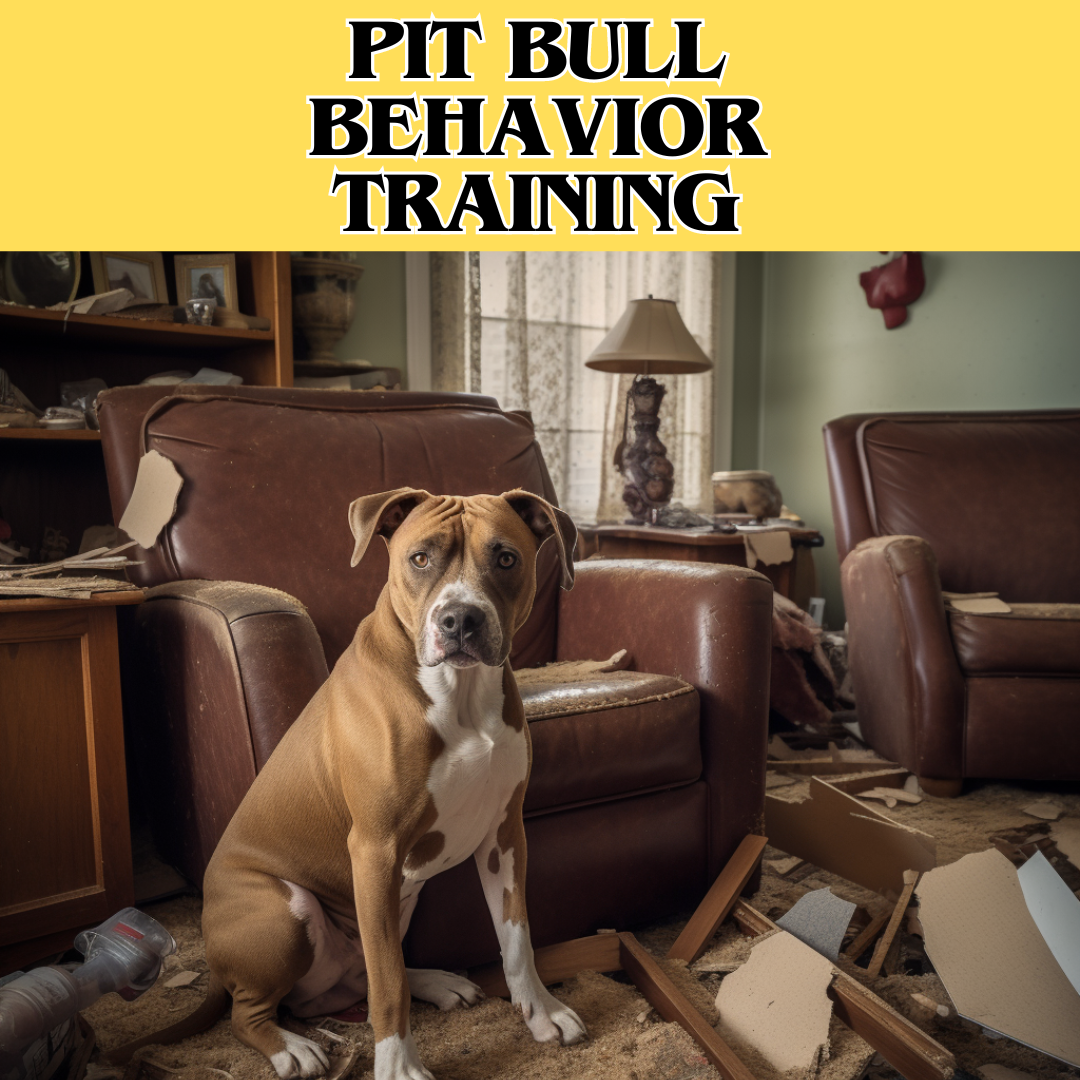Approaches to Change Undesirable Behaviors in Pit Bulls Through Positive Reinforcement and Consistent Training Practices
| Key Takeaways | |
|---|---|
| Positive Reinforcement | Utilizing desirable stimuli to increase the likelihood of repeating a desired behavior. |
| Consistent Training Practices | Implementing regular training sessions to foster desirable behaviors and habits. |
| Socialization Strategies | Exposing Pit Bulls to various people, animals, and environments to enhance their social skills. |
| Behavioral Modification Techniques | Employing specific strategies to alter undesirable behaviors effectively. |
Ever had a tough time with your Pit Bull’s stubborn habits? Well, I’ve been there, and I know how it feels. This post is all about changing those tough habits in Pit Bulls, not by being harsh, but through kind training and steady rules. We’ll dig into why positive vibes and sticking to a routine can make a real difference. It’s all about understanding and patience, and I’ll show you how to get there. Ready to make a change? By integrating these strategies with insights from Pitbull Temperament, Pit Bull Socialization, and Addressing Aggression in Pit Bulls, pet owners can nurture a harmonious relationship with their furry companions.
Understanding Behavioral Modification
Behavioral modification is a systematic approach to changing behaviors, emphasizing the use of positive reinforcement to encourage desirable actions. This technique is particularly effective in Pit Bulls, who respond well to positive feedback. When a Pit Bull performs a desired behavior, rewarding them immediately with treats, praise, or play reinforces that behavior, making it more likely to occur in the future. For more detailed insights, explore the principles of behavioral modification in our article on Basic Obedience.
Implementing Positive Reinforcement
The cornerstone of modifying a Pit Bull’s behavior lies in positive reinforcement. This method involves presenting a reward immediately after the desired behavior is performed, thereby increasing the likelihood of the behavior being repeated. It’s essential to vary the rewards to keep the training sessions engaging and effective. Discover various techniques for effective reinforcement in our detailed guide on Pit Bull Nutrition Guide, which can be useful for selecting appropriate reward treats.
The Role of Consistent Training Practices
Consistency is key when it comes to training Pit Bulls. Establishing a routine and sticking to it helps in reinforcing the training lessons. Consistent commands, rewards, and training times create a structure that Pit Bulls can rely on, facilitating better learning and behavior modification. For a deeper understanding of establishing training routines, consider our expert advice in Advanced Training for Pit Bulls.
Socialization as a Behavioral Tool
Socialization plays a crucial role in a Pit Bull’s behavioral development. Exposing them to various people, animals, and environments from a young age helps them become more adaptable and less prone to aggression or fear in unfamiliar situations. Effective socialization strategies can significantly impact their temperament and behavior, as discussed in our comprehensive guide on Pitbulls as Family Pets.
Navigating Challenges in Behavioral Modification
While positive reinforcement and consistent training are effective, challenges may arise. It’s important to address these challenges with patience and adaptability, ensuring that the training process remains positive and productive. For insights into overcoming common training challenges, our article on Pitbull Leash Training offers practical solutions.
Customizing Training Sessions to Individual Needs
Each Pit Bull is unique, with its personality, preferences, and learning pace. Tailoring training sessions to suit these individual needs can significantly enhance the effectiveness of behavioral modification efforts. Incorporating fun and engaging activities that resonate with your Pit Bull’s interests can make training more enjoyable and rewarding for both of you. Our resource on Pitbull Physical Traits provides insights into understanding your Pit Bull’s capabilities and how to adapt training accordingly.
The Importance of Early Socialization
The foundation for a well-behaved adult Pit Bull is laid during its puppyhood. Early socialization is crucial in preventing undesirable behaviors such as aggression, fearfulness, and anxiety. Introducing your Pit Bull puppy to a variety of people, animals, environments, and situations helps them become well-adjusted adults. For guidelines on effectively socializing your puppy, refer to our article on Pitbull Puppy Training, which offers valuable tips for a smooth socialization process.
Addressing Aggression Proactively
Aggression in Pit Bulls, as in any dog breed, can stem from fear, territoriality, or a lack of socialization. Proactively addressing signs of aggression with positive reinforcement techniques can prevent these behaviors from becoming ingrained. Understanding the root cause of aggression and employing targeted strategies to mitigate it is critical. Our in-depth analysis in Addressing Aggression in Pit Bulls offers a comprehensive approach to understanding and managing aggression constructively.
Consistency Across Environments
Maintaining consistency in commands, rewards, and disciplinary actions across different environments ensures that Pit Bulls understand what is expected of them, regardless of the setting. This consistency helps in generalizing learned behaviors, making it easier for Pit Bulls to adapt and behave appropriately in various situations. For more on creating a consistent training environment, explore our advice on A Safe Environment for Your Pit Bull.
Building a Supportive Community
Engaging with a community of Pit Bull owners can provide additional support and resources for behavioral modification. Sharing experiences, challenges, and successes with others who understand the breed’s specific needs can offer fresh perspectives and encouragement. Our community-focused article on Pit Bull Ownership Statistics highlights the importance of a supportive network in the journey of raising a well-behaved Pit Bull.
So, we talked about how to help our Pit Bulls drop their bad habits. Remember, it’s all about being kind and keeping to a plan. We saw how giving them treats for good acts and being consistent with rules can work wonders. It’s not overnight magic, but with time and patience, your furry friend will start to get it. Keep at it, and soon enough, you’ll see the changes you’ve been hoping for. Stick to these tips, and both you and your Pit Bull will be happier for it.
FAQ:
Q: Can any Pit Bull’s behavior be modified?
A: Yes, with patience, consistency, and the right techniques, most behavioral issues in Pit Bulls can be effectively addressed.
Q: What’s the best age to start training my Pit Bull?
A: The earlier, the better. Starting as a puppy allows for easier socialization and learning, but it’s never too late to begin.
Q: How long does behavioral modification take?
A: The time frame varies depending on the behavior being modified and the individual dog. Consistent, daily training yields the best results.
Q: Can I train my Pit Bull on my own?
A: Yes, many owners successfully train their Pit Bulls. However, seeking professional help is beneficial for addressing specific issues.
Q: Are rewards always food-based?
A: No, rewards can be anything your Pit Bull loves, such as toys, praise, or playtime. The key is to find what motivates your dog.
Q: How can I socialize my adult Pit Bull?
A: Gradually introduce them to new experiences, ensuring each encounter is positive. Seek professional guidance if you encounter challenges.



